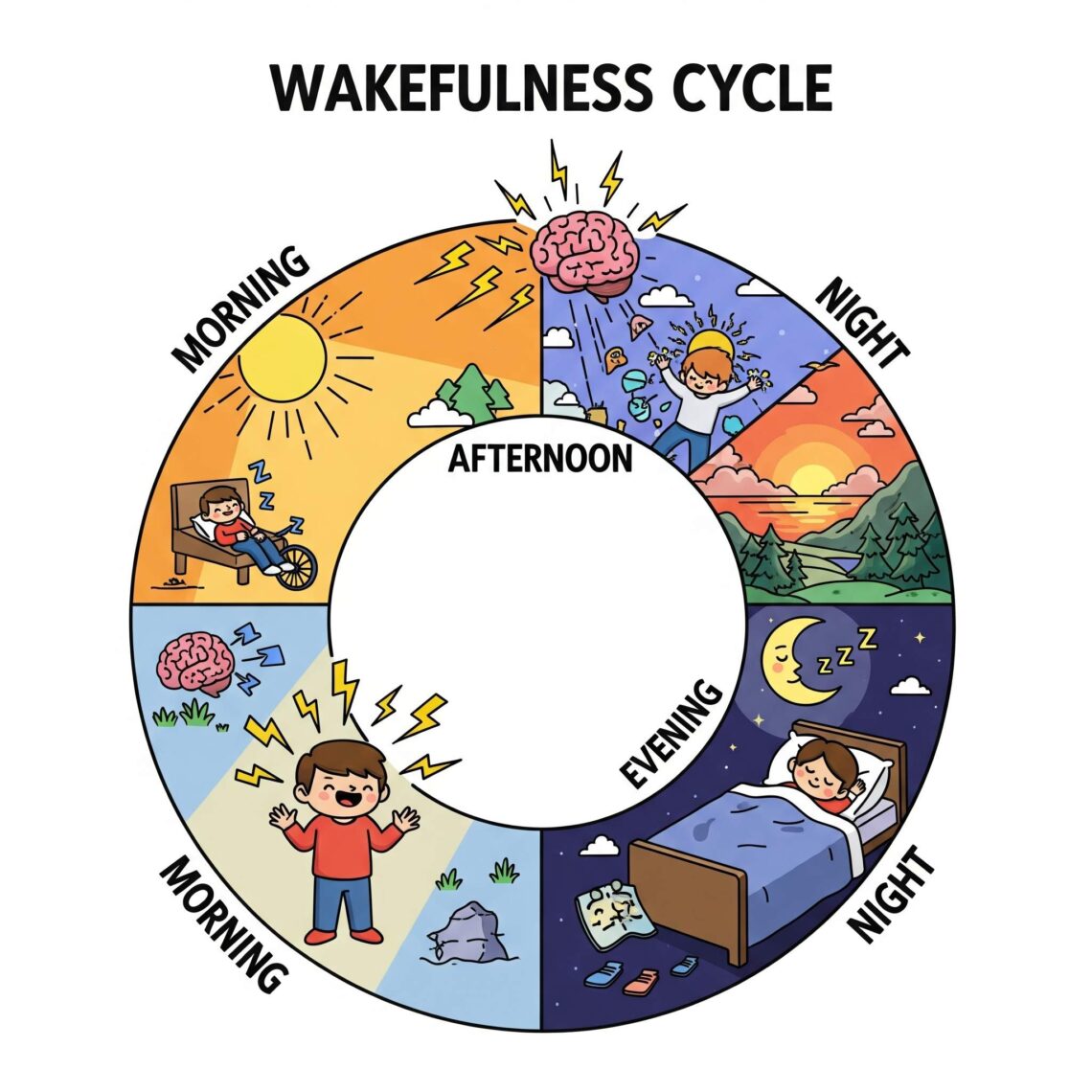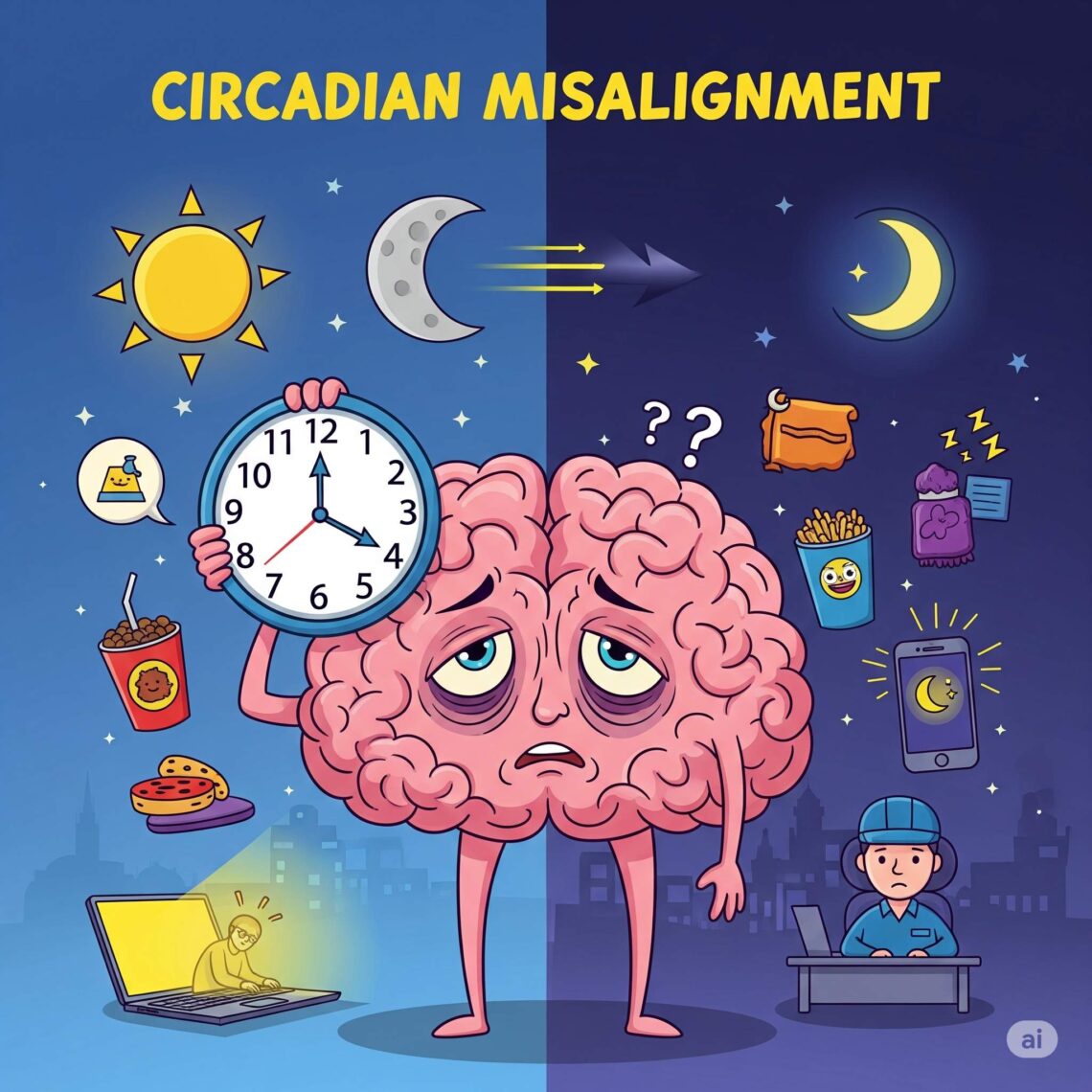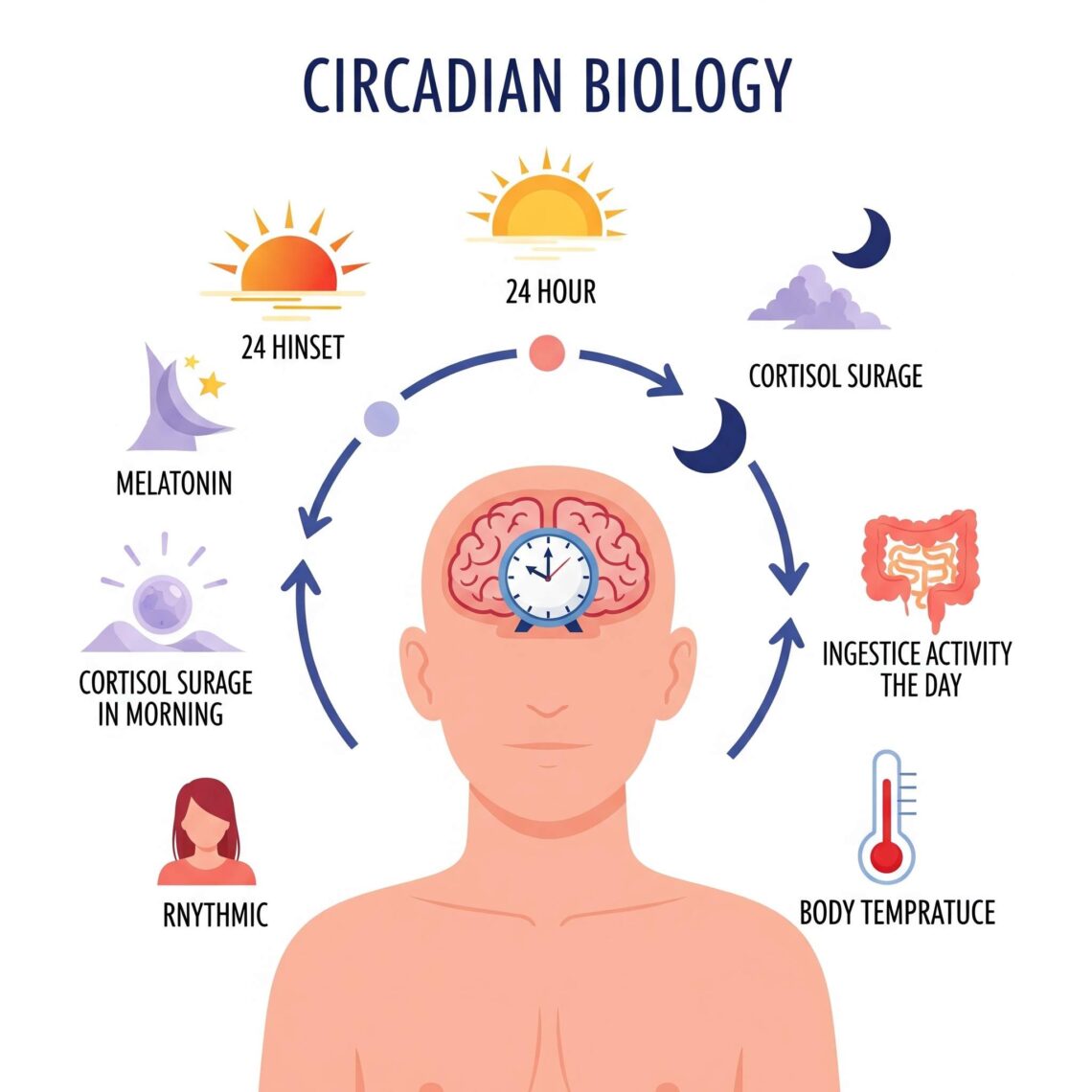The wakefulness cycle, also known as the sleep-wake cycle, is a crucial part of your circadian rhythm—your body’s internal clock that regulates when you feel alert and when you feel sleepy. Optimizing this cycle is essential for boosting energy, improving mental clarity, and supporting long-term physical and mental health. In this article, we’ll explore how the wakefulness cycle works, what disrupts it, and how you can enhance it to achieve peak alertness and productivity throughout the day. What is the Wakefulness Cycle? The wakefulness cycle is the portion of your 24-hour circadian rhythm responsible for keeping you awake and alert…
-
-
In today’s 24/7 society, many people unknowingly suffer from circadian misalignment, a condition that silently disrupts your internal body clock. This misalignment between your biological rhythms and external cues such as light, food, and activity can wreak havoc on your health, performance, and overall well-being. What Is Circadian Misalignment? Circadian misalignment occurs when your internal body clock—also known as the circadian rhythm—is out of sync with your environment or behavior. Your circadian system is a 24-hour cycle that regulates sleep-wake timing, hormone release, metabolism, and even immune function. It’s controlled by a master clock in the brain (the suprachiasmatic nucleus)…
-
Circadian biology is the study of the biological rhythms that follow a 24-hour cycle, influencing sleep, metabolism, hormone release, and many other essential bodily functions. These rhythms are driven by the circadian clock, an internal timekeeping system that helps the body anticipate and adapt to regular changes in the environment—especially the cycle of light and darkness. Understanding circadian biology is crucial in today’s fast-paced, artificial light-filled world, where many people suffer from circadian disruption without even realizing it. The Science Behind Circadian Biology At the heart of circadian biology is the suprachiasmatic nucleus (SCN), a group of neurons located in…


